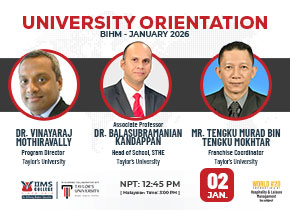In the Data Science specialization, you will delve into the field of data analysis and learn techniques to extract valuable insights from vast amounts of data. You will study data mining, statistical analysis, machine learning, and data visualization, equipping you with the skills to make data-driven decisions and contribute to the growing field of data science.


Statistical Inference and Modelling
Statistical inference uses sample data to make generalizations about a population through methods like hypothesis testing and confidence intervals, assessing the reliability of conclusions. Statistical modelling creates mathematical models to represent relationships within data. Techniques such as linear regression and logistic regression predict outcomes and identify patterns.


Data Science Principles
Data science principles involve extracting insights from data using techniques like statistical analysis, machine learning, and data visualization. Key steps include data collection, cleaning, exploration, and modeling. These principles enable informed decision-making and problem-solving across various fields, transforming raw data into valuable information that drives innovation and efficiency.


Big Data Technologies
In our Big Data Technologies course, part of the Artificial Intelligence specialization, you’ll master the tools and techniques needed to manage and analyze large-scale data. This course covers Hadoop, Spark, and more, preparing you to extract actionable insights and drive decision-making in data-driven industries.


Data Mining
Data mining involves extracting valuable information from large datasets using techniques such as clustering, classification, regression, and association rule learning. It encompasses data preprocessing, pattern discovery, and knowledge extraction to uncover hidden patterns, trends, and correlations. This process aids in decision-making, predictive analysis, and strategic planning across various industries, transforming raw data into actionable insights.


Machine Learning and Parallel Computing
Machine Learning and Parallel Computing explores the intersection of AI and high-performance computing. This subject covers machine learning fundamentals, model training, and optimization while integrating parallel computing techniques to handle large-scale data efficiently. Students learn how to leverage distributed computing frameworks, GPUs, and cloud-based solutions to accelerate ML workloads, enhancing speed and scalability.


Professional Practices & Information Security
Professional Practices & Information Security covers ethical, legal, and professional responsibilities in the IT industry while emphasizing cybersecurity principles. Students learn about data protection, risk management, ethical hacking, and compliance with security standards. The course also explores best practices in workplace professionalism, digital forensics, and strategies to safeguard systems against cyber threats.


Advanced Programming
Advanced Programming focuses on developing high-level coding skills, emphasizing efficient algorithms, design patterns, and software optimization techniques. The course covers modern programming paradigms, best practices, and real-world problem-solving to build robust and scalable applications.


Understanding Entrepreneurialism
Understanding Entrepreneurialism explores the mindset, skills, and processes essential for entrepreneurship. The course covers idea generation, business planning, risk management, and innovation, helping students develop a strategic approach to starting and managing a business. It also examines real-world entrepreneurial challenges and opportunities in various industries.





